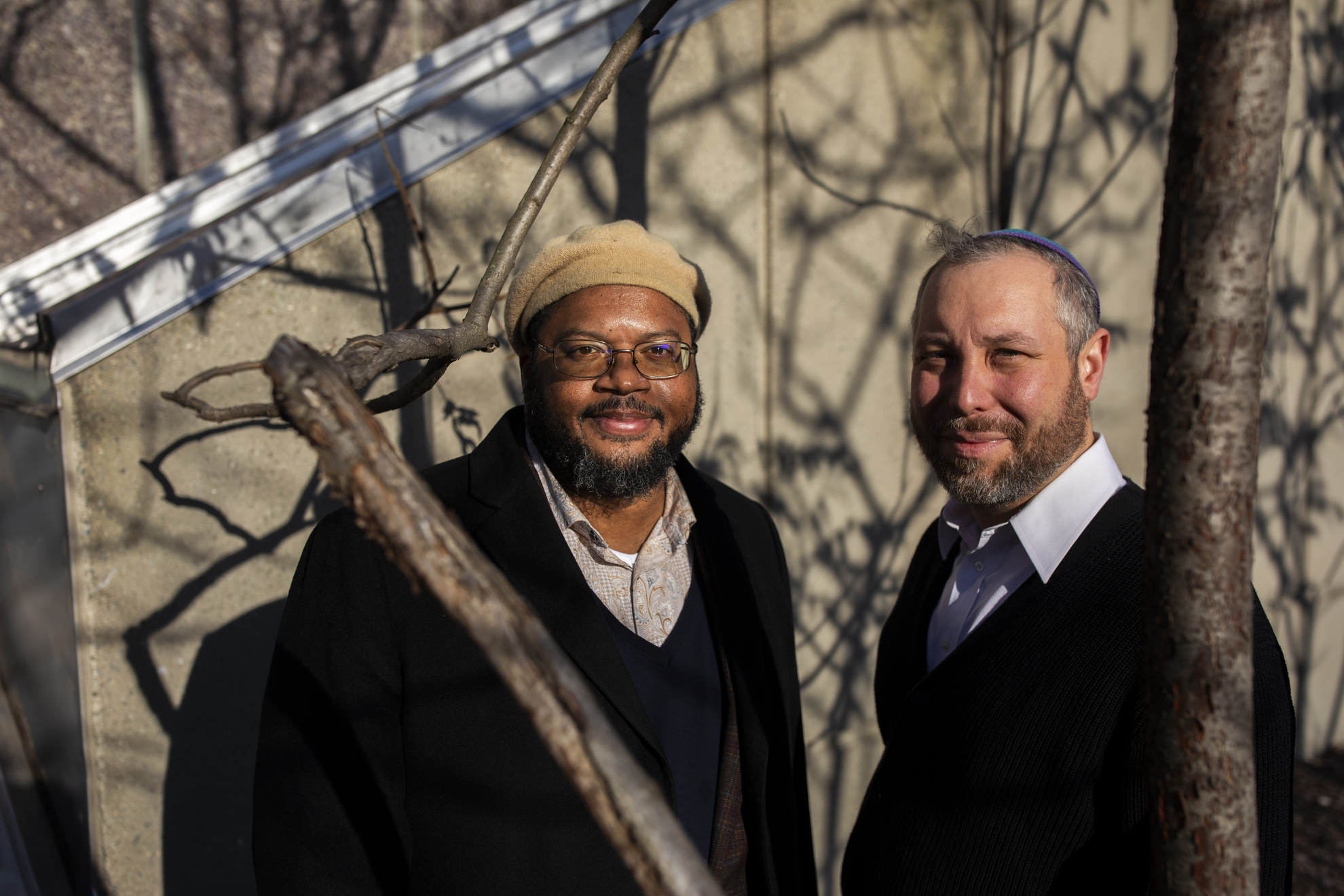
Imam Khalil Abdur-Rashid (left) and Rabbi Getzel Davis.
Photos by Veasey Conway/Harvard Staff Photographer
Key to healing riven communities? Getting people together.
Campus rabbi, imam work to ease pain in their groups caused by Israel-Hamas war, model power of personal ties
Part of a series of profiles focused on community-led efforts to promote dialogue across campus.
Many Muslim students used to regularly dine at Harvard Hillel as much of the kosher cuisine is also halal. And students of both traditions would join to host Sukkat Salaam, an annual interfaith dinner to celebrate the Jewish holiday of Sukkot, campus religious leaders say.
But the Oct. 7 terror attacks changed all that, damaging the sense of collegiality and community between the two groups, with lines drawn between pro-Israeli and pro-Palestinian supporters, according to campus Rabbi Getzel Davis and Muslim Chaplain Khalil Abdur-Rashid. Seeing the pain in their communities, the two chaplains joined forces to support each other and help bring their communities back together.
So far, reticence remains, and progress has been slow. But the two intend to persevere. They are convinced that the answer will eventually reside in restoring and strengthening personal connections between individual members of the communities, an effort they model.
“Given the divisions that were forming on campus, we knew that we had to be in relationship with each other,” said Davis, who has been working at Harvard Hillel for over 10 years. “We supported each other as colleagues and worked to bring together our communities, both of which are still in very difficult places and feeling a lot of alienation and a lot of fear.”
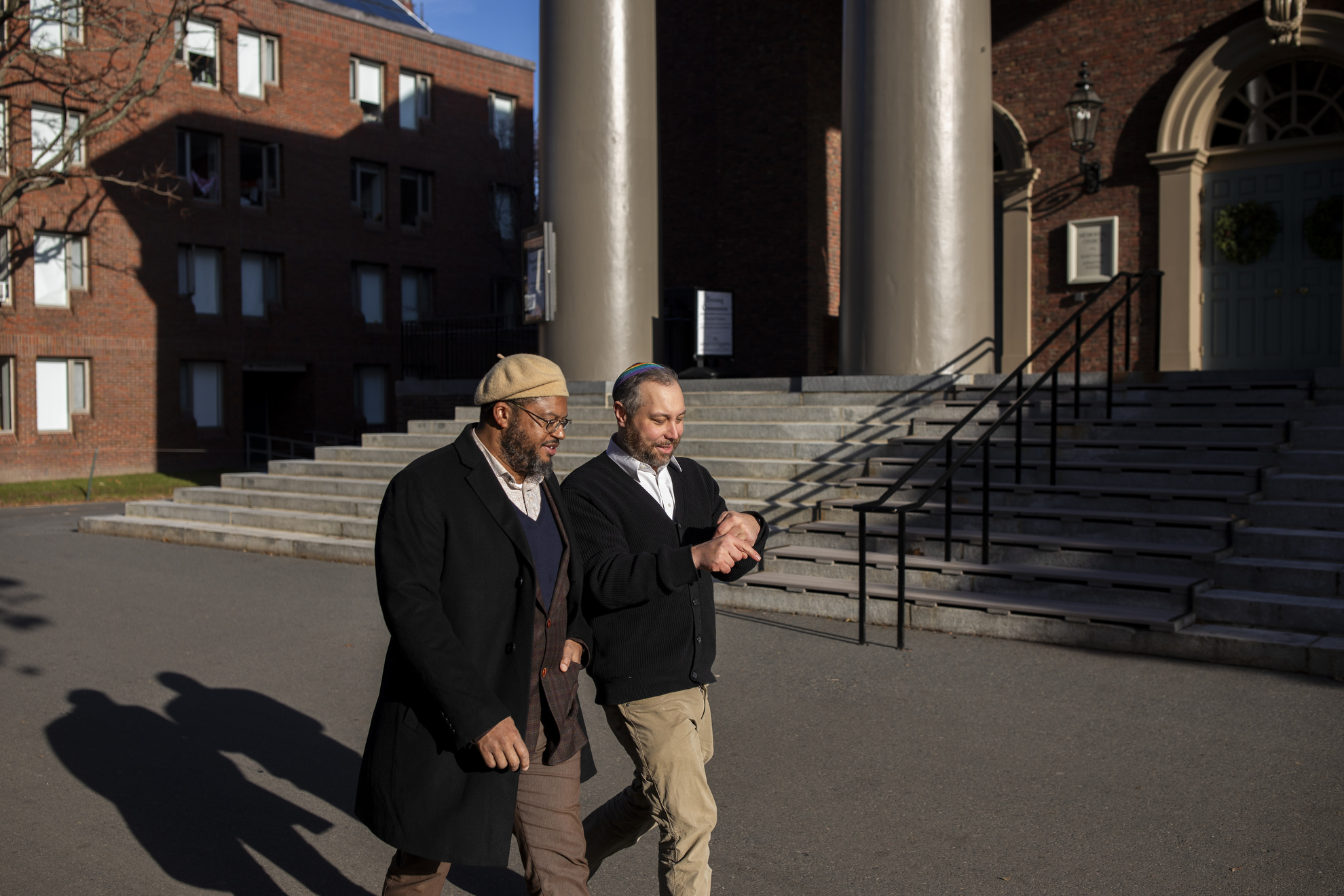
Since November of last year, the two have held weekly meetings, in which they mourned together, shared meals, met each other’s families, and built a strong bond of friendship.
“The thing that really drew me to Khalil was his deep care for his community and psychological training which is something we both share,” Davis said. “We also speak a lot about the deep commonalities in experience Jewish and Muslim students experience on campus today — both the amazing opportunities and also the challenges of being religious minorities.”
“One thing I can say about him is that his kids and family are the world to him,” Adbur-Rashid noted of Davis. And he added, “He also loves to work out, something I admire in him.”
“It’s scary for some people who want to cancel other narratives to suggest that two people who are legitimately different could care about each other.”
Rabbi Getzel Davis
Initially, the chaplains were singularly focused on preserving the work done through the Harvard Interfaith Forum, which was launched in 2014 to promote religious, spiritual, and ethical awareness and understanding on campus.
“We both wanted to protect the work students have done in the interfaith realm,” said Abdur-Rashid, who became Muslim chaplain in 2017. “And there was a need to find ways to bring students together and push back against efforts from off-campus groups to keep our students polarized.”
They came up with several ideas, including a communal mourning circle, an outdoor meditation activity, a joint field trip, and an interfaith iftar, but they all failed to materialize. Students were too hurt, too angry, and too scared to take part in activities with members of other faith communities, said Davis.
Realizing the deep emotions and the alienation felt by students, the religious leaders decided to ease off on interfaith events. Instead, they focused on helping their own communities find comfort and support in each other. “Both of our communities were dealing with significant fear and trauma,” said Abdur-Rashid. “We had to allow our student communities to heal inside first.”
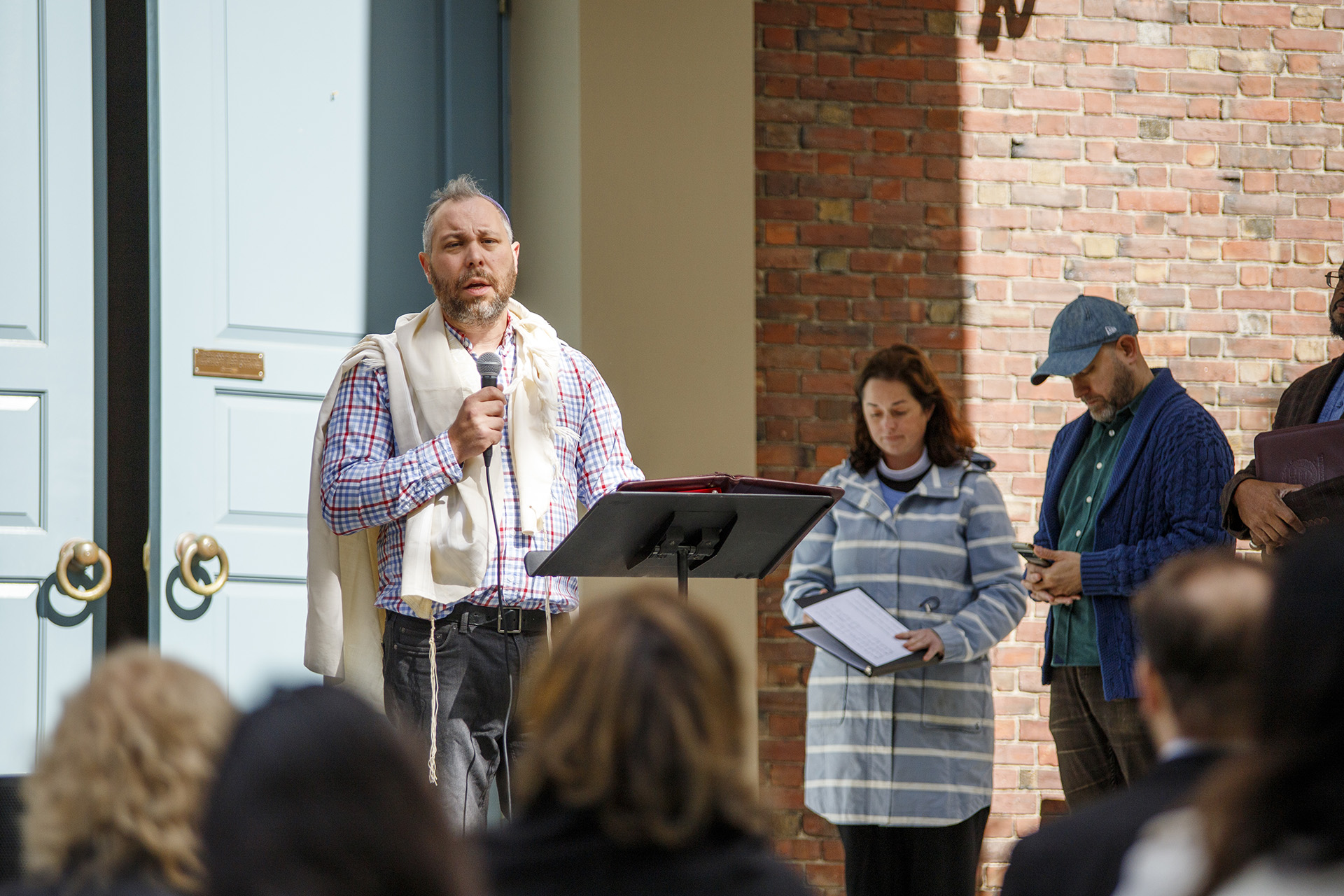
Davis and Abdur-Rashid co-led an interfaith vigil outside Memorial Church last year.
Harvard file photos
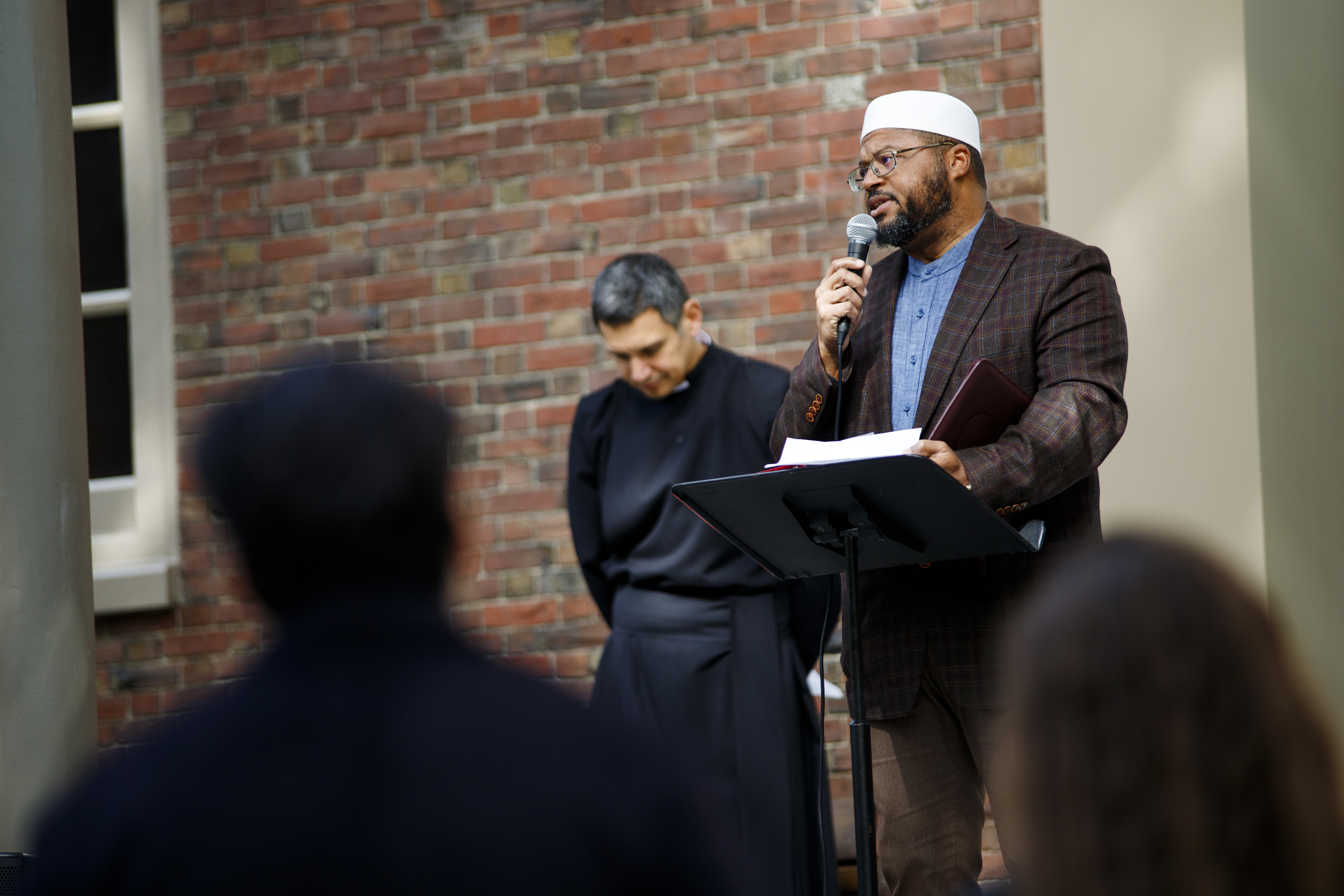
There have been signs of the beginning of change, however. An interfaith vigil on the steps of Memorial Church held last year highlighted the importance of mourning together. A community dialogue series on what it means to be a good neighbor, led by five Harvard chaplains, drew a wide audience. And at last year’s Commencement, both Davis and Abdur-Rashid gave the opening benediction to the graduating class.
“We wrote our blessings in dialogue with each other, speaking distinctively from our own traditions, but in resonance with each other,” said Davis. “We wanted to model for others how we could be together through difference.”
The two religious leaders say building community with others from different backgrounds or religions, based on tolerance and respect, is not only possible but also critical, as is standing together against hate.
“There’s a lot of people who want to believe that it’s not possible that we could be friends with people who are different than us,” said Davis. “It’s scary for some people who want to cancel other narratives to suggest that two people who are legitimately different could care about each other.”
“One’s identity is important, but one only knows oneself through the discovery of others.”
Imam Khalil Abdur-Rashid
Despite the challenges, Davis and Abdur-Rashid believe the rifts across the University will be repaired. The University’s work to combat both antisemitism and Islamophobia over the last year makes them feel more optimistic. For the Muslim chaplain, the way to deal with different perspectives demands an interdisciplinary approach from academia to religion to ethics.
“We live in a world of robust diversity, one might even call it inescapable diversity,” said Abdur-Rashid. “The paradoxical beauty in that is that we learn more about ourselves through our encounters with difference. One’s identity is important, but one only knows oneself through the discovery of others.”
Davis agreed. “Being able to be friends across difference or to be in relationship with people who are different from us is important for future leaders of men,” he said. “There are many in the Jewish community and in the Muslim community that are feeling afraid and alienated, and the best antidote to that is togetherness.”
More like this
-
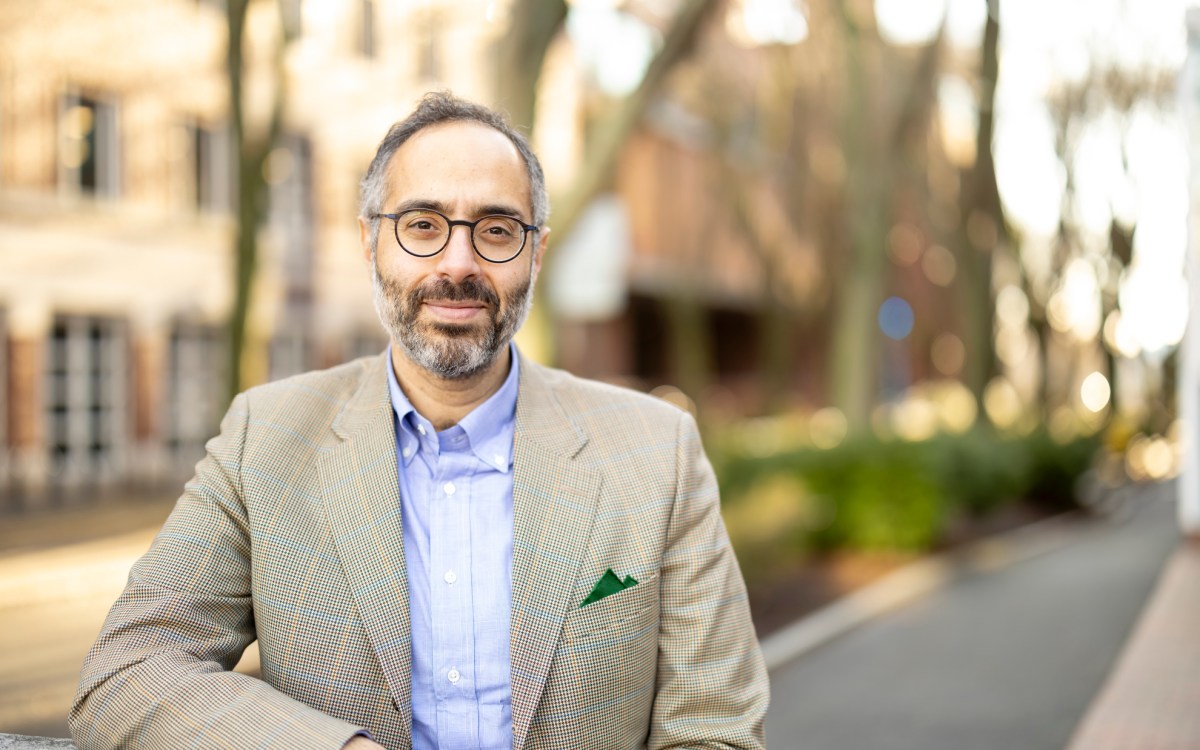
Stepping into the hot center
Tarek Masoud’s ‘Middle East Dialogues’ sparked many conversations — including about importance of having them
-
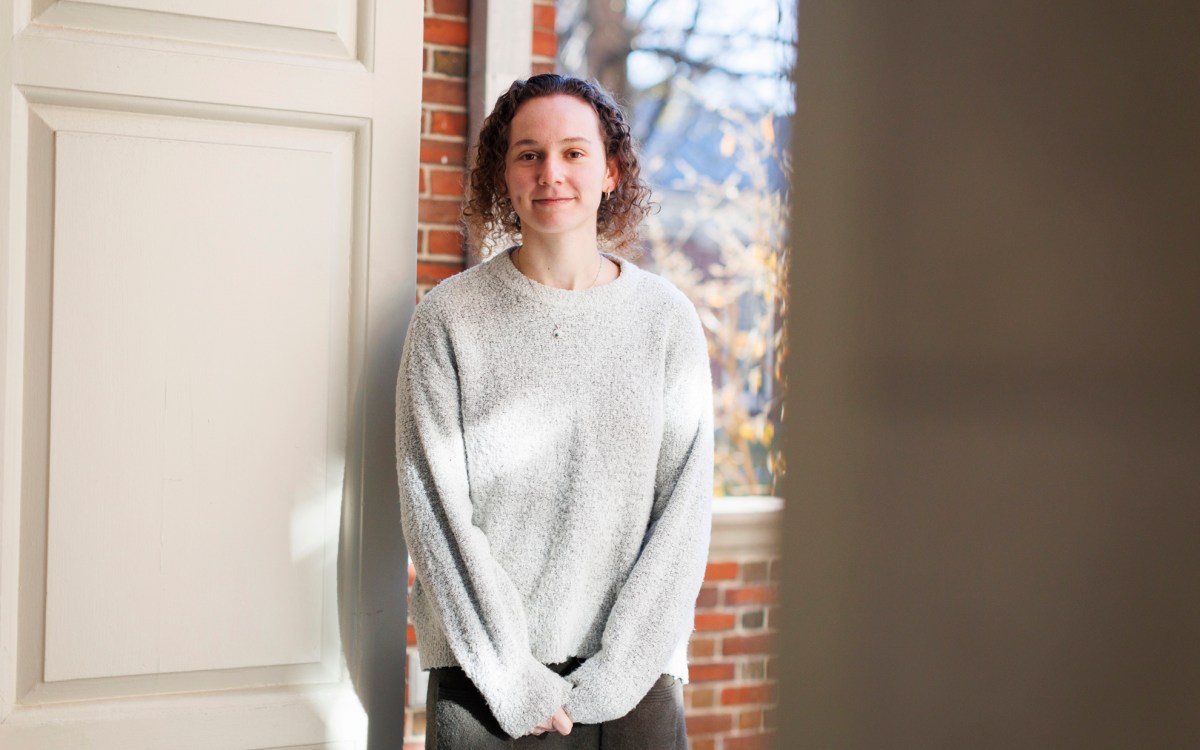
Conflict is inevitable. Rancor isn’t.
It all begins, undergrad nonprofit founder says, with nurturing curiosity about what other side really thinks, and why
-
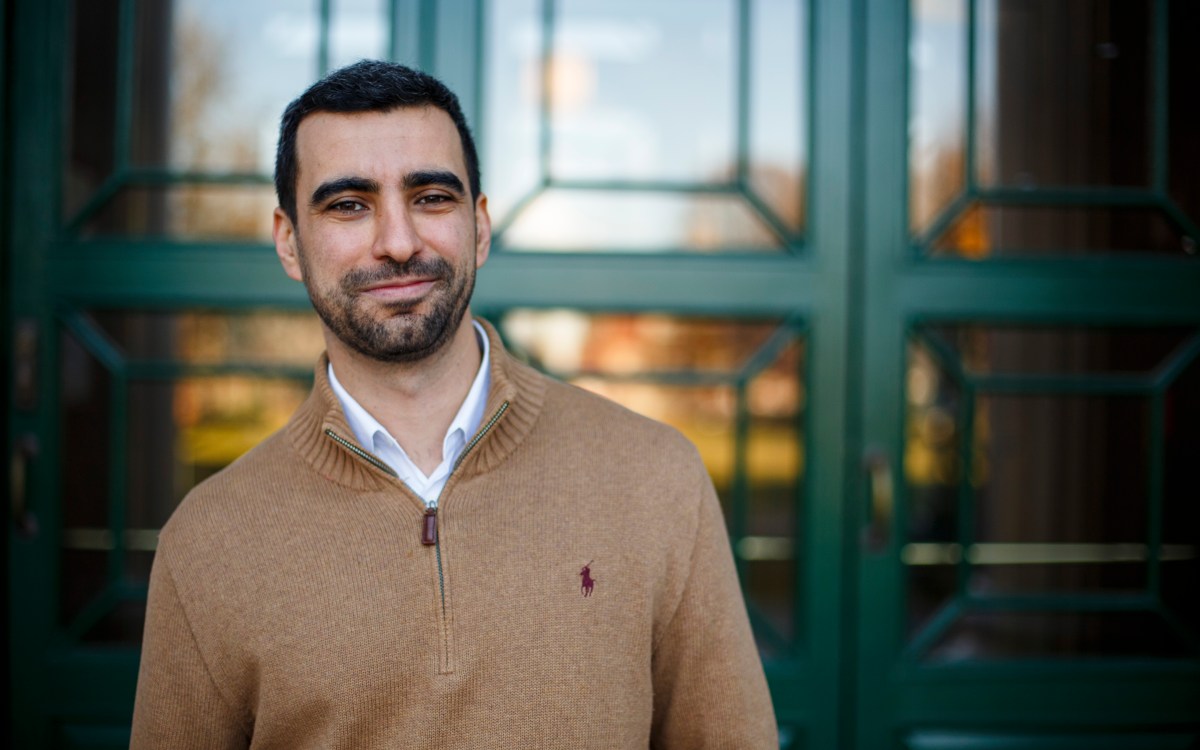
Sense of isolation, loss amid Gaza war sparks quest to make all feel welcome
Nim Ravid works to end polarization on campus, across multicultural democracies




